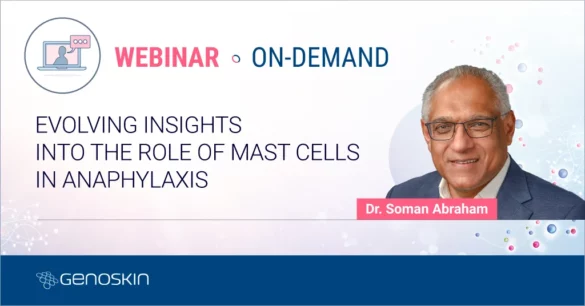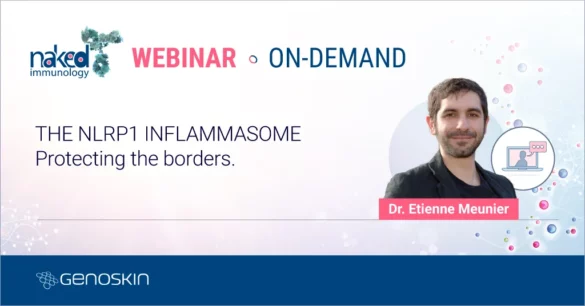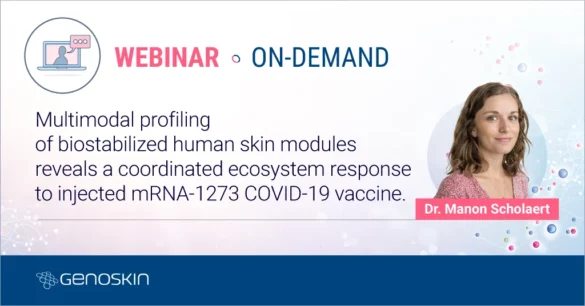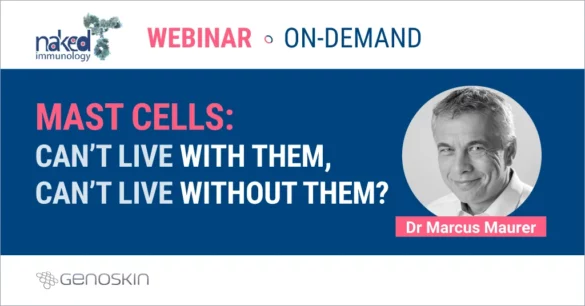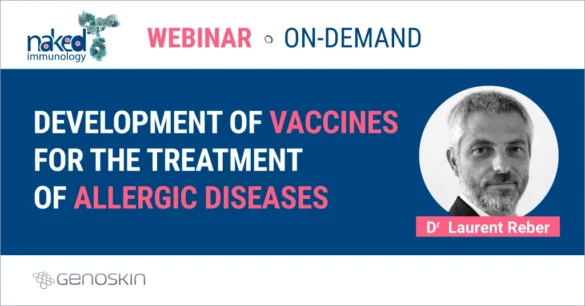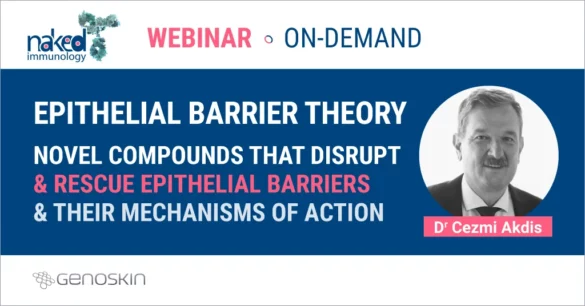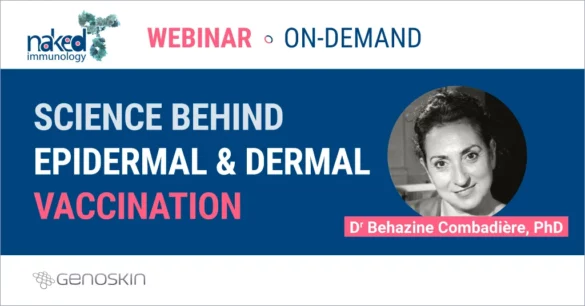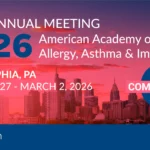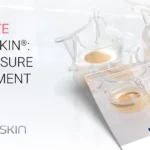Top-level science through the eyes of an expert.
Skin Deep: how microbes & immunity shape allergic reactions
Did you miss the live session? You can now watch the full webinar replay on demand where Dr. Phlipp Starkl explores how the skin’s immune system balances protection and pathology in response to microbial threats. In this webinar, Dr. Philipp Starkl shared his latest research on type 2 immunity in the skin and how protective mechanisms can shift into allergic disease.

From defense to disease: how type 2 immunity shapes skin health
Discover how type 2 immunity protects the skin from microbial threats—and what happens when it goes too far.
The skin serves as a vital barrier, protecting the body from harmful environmental substances and microbial threats. It is also home to a diverse community of microorganisms—the cutaneous microbiome—which plays a crucial role in immune system development and regulation. When this delicate ecosystem is disrupted, it can contribute to the onset of immunopathologies, including allergic diseases.
In this webinar, Dr. Phlipp Starkl will present new insights into the dynamic nature of type 2 immune responses during bacterial skin infections. He will shed light into the mechanisms that normally promote protection, and how under certain conditions, these same responses can become maladaptive, driving allergic inflammation instead.
This session is a must-attend for immunologists, dermatology researchers, and professionals in skin biology, microbiome science, or allergy and infection research.
Watch the webinar now!
Replay now available!
After submitting this form, you will receive an email containing the link to access the replay.
About the speaker:

Dr. Philipp Starkl
Associate Professor, Department of Medicine I, Research Division Infection Biology, Medical University of ViennaPhilipp Starkl studied Molecular Biology at the University of Vienna, Austria. During his Master’s thesis with Támas Schweighoffer at the Novartis Institute for Biomedical Research in Vienna, he became fascinated by mast cells—enigmatic immune cells best known for their central role in allergic diseases. Philipp pursued a PhD in Immunology under the supervision of Erika Jensen-Jarolim and Eva Untermayr-Elsenhuber at the Medical University of Vienna, focusing on the molecular mechanisms underlying food allergy development.
Philipp then moved to the United States to join Steve Galli’s lab at Stanford University as a postdoctoral fellow, where he continued and expanded his research on mast cells and type 2 immunity. His work in the Galli lab addressed fundamental questions about the biological functions of allergic immune responses and led to the discovery of a surprising role for IgE antibodies and mast cells in adaptive immune protection against insect and reptile venoms.
Returning to Austria, Philipp joined Sylvia Knapp’s group at CeMM (the Center for Molecular Medicine of the Austrian Academy of Sciences) and the Medical University of Vienna as a senior postdoctoral researcher. There, he investigated antibacterial type 2 immune responses and demonstrated that the “allergy module”—mast cells and IgE antibodies—can contribute to host defense against pathogenic, toxin-producing bacteria.
Since 2023, Philipp has led an independent research group and, in 2024, was appointed a tenured Associate Professor at the Department of Medicine I at the Medical University of Vienna. His lab investigates the interplay between microbial infections and type 2 immune responses in barrier organs with the aim to better understand the long term consequences of inflammation for the development of future unrelated immune responses.
Additional resources on Dr. Starkl’s research
IgE Effector Mechanisms, in Concert with Mast Cells, Contribute to Acquired Host Defense against Staphylococcus aureus
Starkl P, Watzenboeck ML, Popov LM, et al. Immunity. 2020 Oct 13;53(4):793-804.e9
Eosinophil innate immune memory after bacterial skin infection promotes allergic lung inflammation
Radhouani M, Farhat A, Hakobyan A, et al. Science Immunol. 2025 Apr 4;10(106)
Catch up on previous webinars
Comments are closed.


